Books by Claudia Gina Hassan
Clockwork Enemy, 2020
is professor of Sociology at the University of Torino. He is member of the Research Network of th... more is professor of Sociology at the University of Torino. He is member of the Research Network of the European Sociological Association "Racism, Anti-Semitism and Ethnic Relations" (RN 31). He coordinates the Unesco Chair on Sustainable Development at the University of Turin. He has recently published articles on the Anthropocene, global racism and climate change.
Piattaforme, sfera pubblica e segretezza. by Claudia Gina Hassan
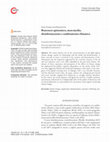
Cambio. Rivista sulle Trasformazioni Sociali
The article analyzes one of the crucial junctures in the fight against climate change, namely its... more The article analyzes one of the crucial junctures in the fight against climate change, namely its relationship with the media and disinformation. A dense network of actors is involved in the creation and dissemination of disinformation that has long been supported by the economic interests of the oil and coal industries and is now fully embedded in the post-truth climate. The absence of direct experience and perception of the effects of climate change has emphasized the public’s cognitive dependence on the media, which, however, have lagged far behind and manifested inadequacy with respect to the emergence of the global warming issue. In dialogue with a vast scientific literature and Pew research data, the paper analyzes the widespread post-factual and social attitudes ranging from skepticism to outright militant denialism.In this context, the article proposes and signals the need for a healthy epistemic environment, understood as an indispensable index of the quality of democra...
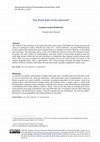
International Journal of Psychoanalysis and Education, 2017
The relation of anti-semitism to the media has always been intense. This theme has always been pe... more The relation of anti-semitism to the media has always been intense. This theme has always been pervaded by an "ontological" virality. With the rise of the web-viral by definition-the post-WWII democratic taboo against anti-semitism has been weakened due to its entering a no man's land free of all controls and restrictions. The antisemitic galaxy on the web exhibits the traits of a closed self-referential, sectarian group. The code words, the commonplaces and usual clichés of anti-semitic prejudice, however, make deep inroads within the web and contribute to re-legitimize those themes beyond sectarian audiences. What was once considered an abhorrent prejudice can now be easily found in the guise of one opinion alongside others. After a rapid birdeye view of the far-right in Europe, this paper examines a number of diverse websites which share the same anti-semitic prejudice disguised in various ways.

The Biblical notion of “scapegoat” has been inflected and interpreted from a theological, philoso... more The Biblical notion of “scapegoat” has been inflected and interpreted from a theological, philosophical, sociological and a psychoanalytic angle. Based on a reconstruction of these different interpretive lines, and highlighting the frequent conflation of these diverse planes, the usage of this notion in contemporary politics will be examined. The internal dynamics and the ethical and social consequences of the construction of scapegoats during the 20th century and in contemporary society will be analyzed. The violent moment within the creation of a scapegoat, a moment understood as “mimetic desire” by Girard, is strictly linked with the construction of identity. In the so-called “totemic meal”(Freud) the impure elements are devoured. Thus through magical thinking (Jung) a group secures the ostracization of the negative. Furthermore, theories of identity are compared with theories of the scapegoat: the essential points of convergence are found to be the decomplexification of problems...
The topic of immigration, central to the latest electoral campaigns of all European countries, ha... more The topic of immigration, central to the latest electoral campaigns of all European countries, has gained space and visibility also in the Italian PUBIC debate. Like the specifically political debate, even that taking place in the public sphere and the press is strongly polarized: the immigrant is the angel to be saved or the black soul to be demonized. The paper, which is part of a research that will last until 2019, traces these different images y analyzing newspaper articles. The emptying of public opinion has created around the immigrant a symbolic space in which the vision of the present and of the future of democracy is projected.
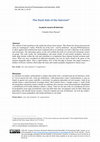
The relation of anti-semitism to the media has always been intense. This theme has always been pe... more The relation of anti-semitism to the media has always been intense. This theme has always been pervaded by an “ontological” virality. With the rise of the web – viral by definition – the post-WWII democratic taboo against anti-semitism has been weakened due to its entering a no man’s land free of all controls and restrictions. The antisemitic galaxy on the web exhibits the traits of a closed self-referential, sectarian group. The code words, the commonplaces and usual clichés of anti-semitic prejudice, however, make deep inroads within the web and contribute to re-legitimize those themes beyond sectarian audiences. What was once considered an abhorrent prejudice can now be easily found in the guise of one opinion alongside others. After a rapid birdeye view of the far-right in Europe, this paper examines a number of diverse websites which share the same anti-semitic prejudice disguised in various ways.
In the context of a broader reflection on memory, the paper analyzes, some didactic experiences o... more In the context of a broader reflection on memory, the paper analyzes, some didactic experiences of teaching the Shoah in different formats in three Italian regions. . The value dimension of individual and collective memory, its ethical value, the study of its transmission methods through the generations, also in relation to the intercultural changes that have taken place in our society since the 1980s, are the main object of interest of this project. The objectives indicated by the project are analyzed in their realization and implementation. Among these, of special importance are: transforming superficial information and simple commemorative memory into meaningful learning; enabling memory to become active participation; contributing to the linkage of the emotional and cognitive dimensions.
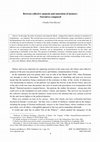
In this paper the forms of memory concerning the Shoah - ranging from collective amnesia to satur... more In this paper the forms of memory concerning the Shoah - ranging from collective amnesia to saturation of remembrance - are compared. The overload and excessive presence of the information, images and initiatives related to the Remembrance Day results on the one hand in a sacralization of the message conveyed but also, on the other hand, in its hollowing out and trivialization. In relation to this media cacophony, education and appropriate curricula are argued to deserve absolute priority in order to prevent memory from turning into a spectacular and self-referential fetish. The different ways of representing the Shoah - a theme linked with memory are then investigated. In contemporary culture two ways of representing and narrating Auschwitz can be distinguished: its theatricalization on one hand, and emphasizing its ineffability on the other. The question of ineffability constitutes a backdrop against which the constant need for narrating, representing and commemorating can be unde...
What is IRPPS? IRPPS is an Interdisciplinary Research Institute that conducts studies on demograp... more What is IRPPS? IRPPS is an Interdisciplinary Research Institute that conducts studies on demographic and migration issues, welfare systems and social policies, on policies regarding science, technology and higher education, on the relations between science and society, as well as on the creation of, access to and dissemination of knowledge and information technology. www.irpps.cnr.it Modularité et inclusion dans les pratiques de participation
Università degli Studi di Roma Tor Vergata. ...
SOCIOLOGIA E RICERCA SOCIALE
This paper examines the isuue of citizen participation, one of the most important pieces of the d... more This paper examines the isuue of citizen participation, one of the most important pieces of the debate on democracy: This article compares two different experiences of participation: participation in support of an election campaign and participation in an experience of ...
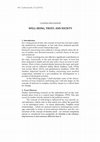
Lebenswelt. Aesthetics and Philosophy of experience
The concept of well-being is correlated with social indicators linked in turn with the classical ... more The concept of well-being is correlated with social indicators linked in turn with the classical notion of “the good life”. The paper, instead, emphasizes the importance of relational aspects. It develops a reflection on the dialectic of interpersonal and systemic trust and mistrust, and it analyzes different semantic nuances of the notion of trust. A society characterized by well-being evidences strong type agency, a society with low levels of well being evidences weak type agency. Trust is a social resource indispensable for sustaining agency, society’s self-transformation and well-being. While trust is traditionally thought to contribute to social cohesion, mistrusting the rulers can also be considered a positive countervailing force in contemporary democracies. At the same time, the distrust sedimented in time creates, on the one hand, a saving expectation and on the other, paternalisation as a search for a substitute trust.
Parolechiave, Jun 1, 2010
Università degli Studi di Roma Tor Vergata. ...








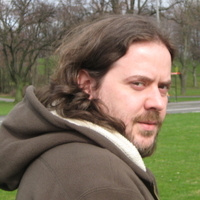


Uploads
Books by Claudia Gina Hassan
Piattaforme, sfera pubblica e segretezza. by Claudia Gina Hassan
La campagna elettorale di Obama pur non essendo la prima ad usare il web, ha fatto diventare strategico e non solo strumentale l’uso della rete. Si dimostra nel saggio come la centralità e la pervasività dell’uso dei media ha agito sui codici culturali. Il punto saliente di questa campagna elettorale, non è quindi solo l'uso efficiente delle tecnologie quanto la capacità di creare un nuovo circuito comunicativo e una dimensione comunitaria molto forte. Si riportano le statistiche sulla campagna per evidenziare la novità del processo in atto. Si analizza inoltre il sito di Obama esemplare nella sua capacità di coinvolgere e far partecipare i cittadini. Ha mobilitato attivamente oltre un milione di cittadini e poteva vantare circa 15 milioni di membri. Questa auto comunicazione di massa come è stata definita da Castells ha una moltiplicazione e diversificazione dei diversi punti di accesso. Questa campagna ha segnato un punto importante nell’analisi delle implicazioni politiche della rete. Non a caso si assiste oggi alla formazione di micro comunità organizzate in rete di fronte ai poteri centrali
A distanza di tanti anni dall’istituzione della giornata della memoria, il testo vuole proporre una riflessione sul suo significato, su come viene percepita, amplificata o anche negata. E ancora sul valore della commemorazione che potrebbe non lasciare spazio ad una elaborazione critica. Il testo mette in relazione la tematica della memoria con quella dell’identità e dell’intercultura. Un’analisi della memoria ebraica a aiuta a comprendere le memorie diverse con cui le società globalizzate convivono. La sua centralità per la memoria europea è dovuta all'enormità stessa della ferita che ha rimesso in discussione il valore stesso dell'umanità e del suo pensiero. Ma a fronte di questa centralità si è molto discusso del rischio della ritualizzazione e monumentalizzazione. In quest'ottica, quindi contro il rischio di una memoria feticcio, di un idolo che svuoterebbe il significato della storia e renderebbe la Shoah come la rappresentazione quasi fuori del tempo di un male radicale, indicibile, il saggio riconduce il problema nei termini di una visione critica e autocritica. Il dovere di memoria quindi non può sostituirsi al lavoro della memoria, quindi alla sua costruzione, al suo rapporto con la storia. L'eccesso di memoria riguarda l’ossessione della ripetizione, è una memoria ripetizione, ben diversa da una memoria trasformativa del presente.
La globalizzazione è segnata da una sovraesposizione della memoria, da una esagerata centralità che è stata definita abuso della memoria. Il saggio analizza il culto della memoria per la memoria che assume le sembianze di rito sostitutivo e quasi propiziatorio contro l’angoscia e il vuoto identitario nel recupero di tradizioni alla deriva, come argine alle frontiere senza limiti, e contro la paura delle frontiere aperte, contro il crollo ideologico, contro il surriscaldamento delle informazioni e alla loro rapida consumazione. Si analizzano inoltre i modi e i tempi in cui la giornata della memoria s’impone in Italia. S’inserisce in un vuoto identitario, in uno spazio pubblico che è divenuto in Italia arena di conflitto . Il testo analizza anche le ragioni di un silenzio sulla Shoah durato molto a lungo
Introduce e modera: prof.ssa Claudia Hassan
UNIVERSITÀ DI CASTEL SANT’ANGELO
Corso Vittorio Emanuele II, 217 - 00186 Roma
tel.06.68804301 - fax 06.68804302
Siti internet: www.unla.it - www.unicastangelo.it email:
sedecentrale@unla.it; pec:unla@legalmail.it
The Copenhagen Accords are identified here as a pivotal moment in hi- story when nationalist and corporate forces formed new alliances and sought novel ways to undermine climate resolutions. The denial machine’s ability to hinder cooperative and coordinated efforts between nation-states was de- monstrated through an unprecedented attack on the summit using media and social media platforms to disseminate disinformation and fuel denialism. This event also foreshadowed the role of social media in subsequent political even- ts, such as the 2016 American election and Brexit, where public opinion was heavily influenced.
The article argues that the patterns seen in Copenhagen have since been repeated in various countries, with advancements in information technology combined with deregulation offering disruptive forces more powerful tools, such as bots, spammers, and astroturfers. The research underscores the urgent need to address these challenges to forge a cooperative and coordinated global response to climate change in the Anthropocene.